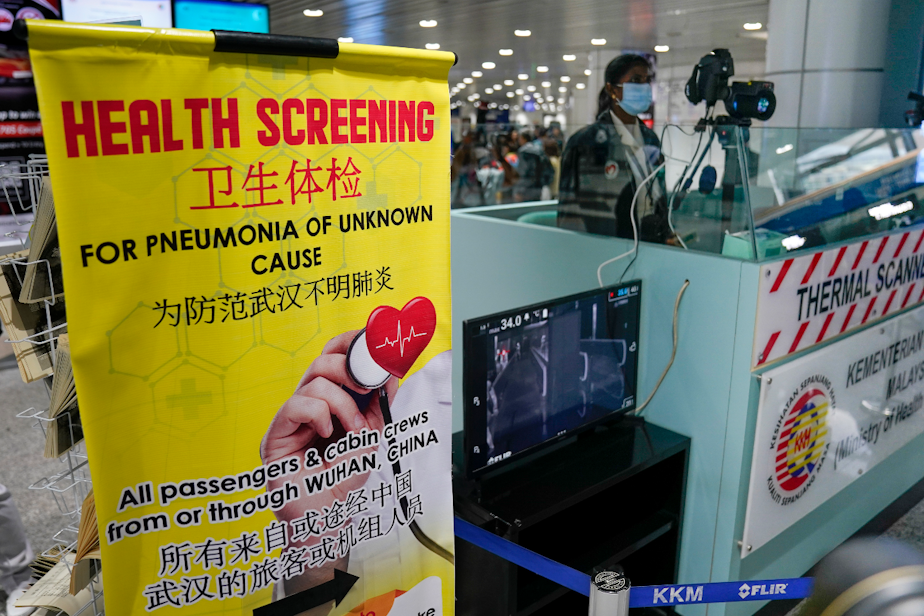Fear the coronavirus? UW doctor cuts through the noise

The new coronavirus that first appeared in China has arrived in the United States with five confirmed cases – one in Washington.
But how worried should you be?
Dr. John Lynch is a University of Washington Medicine physician who practices at Harborview Medical Center in infection control. He told KUOW’s Angela King that the medical community is watching closely but ...
Response to 1st coronavirus case in Washington draws on lessons from measles
John Lynch: Is this something I'm worried about having in one of my patients right now? Not really.
Angela King: You say right now. When would that change?
Lynch: Well, I think the key metric that we're looking for is whether we see any evidence of transmission in patients who have had the virus, who picked it up in China, but then transmitted to someone else in a new country like Japan, like the United States. So far, we don't think that's happened.
Sponsored
King: People are being monitored right now in Washington state after close contact with infected people, potentially infected people. What does close contact mean? How does it spread? Can you get it from touching a contaminated surface?
Sponsored
Lynch: This is a brand new virus. It's similar to some viruses that we're used to seeing, the coronaviruses that cause regular colds. And we have a good sense of how they're transmitted. People cough, they sneeze. Some of those wet droplets travel a short distance, maybe six or eight feet. If you are around that person, you can inhale. Those droplets can get infected, but you can also touch a surface that's been contaminated. And then as you touch that surface and then touch your nose, your eyes, your mouth, you can get infected that way, too. So a lot like we think about influenza. But again, this is pretty early days. This is only really described a few weeks ago and we're still learning more.
King: We've seen reports of face masks flying off store shelves. What is the surest way to prevent getting infected?
Lynch: I think the best way to protect ourselves is actually the same thing we tell people at the beginning of every flu season, every cold season. Washing your hands is really the most important thing that keeps you from touching those surfaces and then contaminating or infecting yourself. The other thing is I always like to remind people that when we're sick, if we can stay home, that's a big help. Keeping ourselves home from work. Keeping our students home from school when they're sick really helps prevent transmission of all these different infectious diseases. But ultimately, it's handwashing that's going to save the day.
King: Coronavirus has been dominating the headlines, but what’s the risk compared to something like the flu, mumps, the measles?
Lynch: It's a great point. Right now [we’ve had] about 38 deaths in Washington state due to influenza, including four children. We're looking at 100 deaths in China [from the coronavirus]. You look globally, 140,000 people died from measles in 2019. Those are still big deal diseases. But with this growing threat from China, definitely our public health colleagues and scientists need to be paying close attention.
Sponsored
King: You mentioned China. Should people avoid traveling to China or Asia right now altogether? And what about flying through Sea-Tac Airport?
Lynch: Yes. So the first one, Sea-Tac Airport, I think we're good to go. It is the flu and cold season. So that hand hygiene part's really important. But traveling to Sea-Tac should be as safe as it ever has been from the infectious disease perspective. Our colleagues with the CDC and the Department of Health around the country are looking at passengers coming from China throughout the country at major airports. The other question you asked about travel to China: The CDC just updated their travel advisory yesterday to level three, which actually recommends against traveling to China for non-essential reasons. So I think obviously was we all know there's a lot going on in China. There's a lot of cases throughout China. And the CDC is really basically recommending folks don't go there unless they have to go there for some important purpose.





